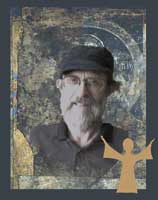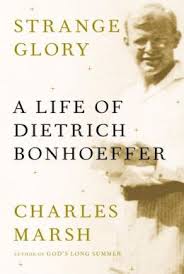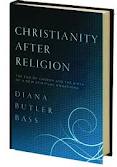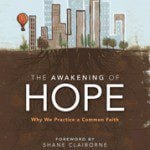Every once in a while, especially when I’m speaking at a seminary, someone will ask what theologians have most shaped my understanding of the church. I’m a reader, and I’m grateful to the teachers that I’ve read and known. There’s a long list I can share, and it varies a bit depending on where I am. But I always say that some of the teachers who’ve shaped me the most are people you’ve never heard of. And one of them is a fellow I never even met. His name was John Alexander.
John was a prophet ahead of his time. From conversations about “emergence Christianity” to the proliferation of house churches to the “new monasticism” movement, Christians today are experimenting with new ways of doing church in America. However they say it, a new generation is dissatisfied with modern church forms and the fruit they produce. So much of what gets proclaimed as good news in America’s churches seems hollow and irrelevant. But what is the alternative? What would it look like to live as the people of God in America today?
This is the question that drove John all of his life. I came to know his work because the community where he lived and worked his last decade, Church of the Sojourners in San Francisco, was good enough to share with me the manuscript of his magnum opus, the book on church that he’d spent his whole life trying to write. They asked if I might edit it and see that it get published. I found there wasn’t too much work to do. It was a nearly complete manuscript. But there was a great deal to learn. Here was a soul friend, pouring out for me the hard earned wisdom of his life’s journey.
It was, indeed, a journey. John Alexander first became dissatisfied with the church tradition he had inherited when evangelical Christians lined up on the wrong side of the civil rights movement in the early 60’s. Together with his father, Fred Alexander, John started The Other Side magazine and was for years a leader among progressive evangelicals.
But in the mid-eighties John reassessed his life and ministry. As he said it, “I eventually found progressive Christians’ rights orientation (by then, my rights orientation) to lack depth. Their litany of who was violating their rights and the rights of others grew boring and had a stunningly different tenor from Jesus’ teaching. Besides, they were no better than schismatic fundamentalists at getting along with folks, and often their sexual stance was roughly as destructive as nuclear war.” John began to suspect that both the right and the left in American Christianity were missing something.
Then, at the Church of the Sojourners in San Francisco, he found a group of people experimenting with a new way of being church. He and his family relocated. John left The Other Side, left the Christian speaking circuit, and took up residence in a 24-7 live-in church.
John’s story reminds me of Henri Nouwen, the well-known academic and spiritual writer who left his teaching post at an Ivy League Divinity School to join a community of people with mental disabilities who were living together with others who not only wanted to care for them, but also to learn from them. By every account (including his own), Nouwen struggled with the transition. But it opened his eyes to the truth of the gospel. However hard it was for him to live this new truth, he wrote beautifully about it.
In the fall of 2006, I visited the Church of the Sojourners and talked to folks there about John Alexander. After ten years with them as member, mentor, and pastor, John had died very quickly from cancer in 2001. Within a very short window of time, the community lost another important elder. They had wondered if it were possible for them to go on. But, somehow, grace sustained them. They kept going.
Having worked through their grief and found a way forward, the folks at Church of the Sojourners said two things about John. First, he understood what they were doing and articulated it in a way that captivated all of them. They loved him for that. But they also noted that, like Nouwen, he struggled to live this vision. To the very end, he was trying to learn to love the people God had given him.
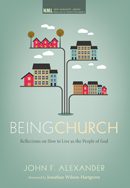 Because John trusted the vision that had captivated him, he stuck with it until then end. He wrote and re-wrote his best expressions of it, trying to say exactly what it was that had claimed his life. The result was the manuscript I’d been given–the book that has just been published as Being Church: Reflections on How to Live as the People of God. It is a carefully distilled manifesto of someone who spent his whole life thinking about how to become the church. And it is, as such, a great gift.
Because John trusted the vision that had captivated him, he stuck with it until then end. He wrote and re-wrote his best expressions of it, trying to say exactly what it was that had claimed his life. The result was the manuscript I’d been given–the book that has just been published as Being Church: Reflections on How to Live as the People of God. It is a carefully distilled manifesto of someone who spent his whole life thinking about how to become the church. And it is, as such, a great gift.
But this book is also the vision of a man who was being transformed by love. It’s the confession of someone who had a lot of good ideas, but still struggled to live them well. John worked on this book until his death, leaving it almost finished. But one of the things he wasn’t sure of was what to call it. He’d liked the title Stop Going to Church… and Become the Church. It summed up nicely his radical idea. But the more he tried to live it, the more he thought he should probably just call it The Love Book.
“Love in action,” Dostoyevsky said, “is a harsh and dreadful thing compared to love in dreams.” But that’s exactly what the church is called to be—exactly what we’ve all been invited to become. This is an idea whose time has come. I pray we’ll find the grace to live it.

